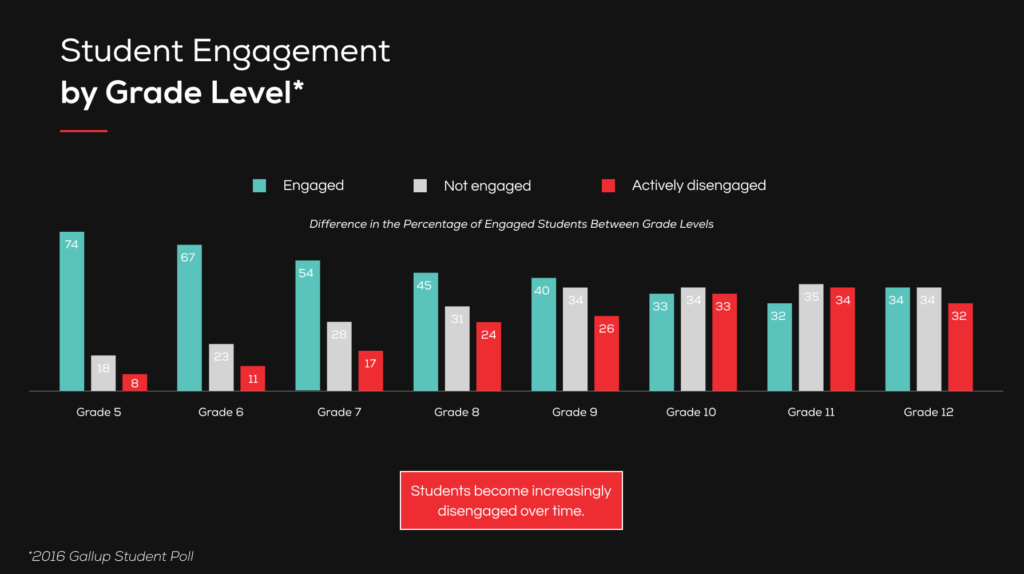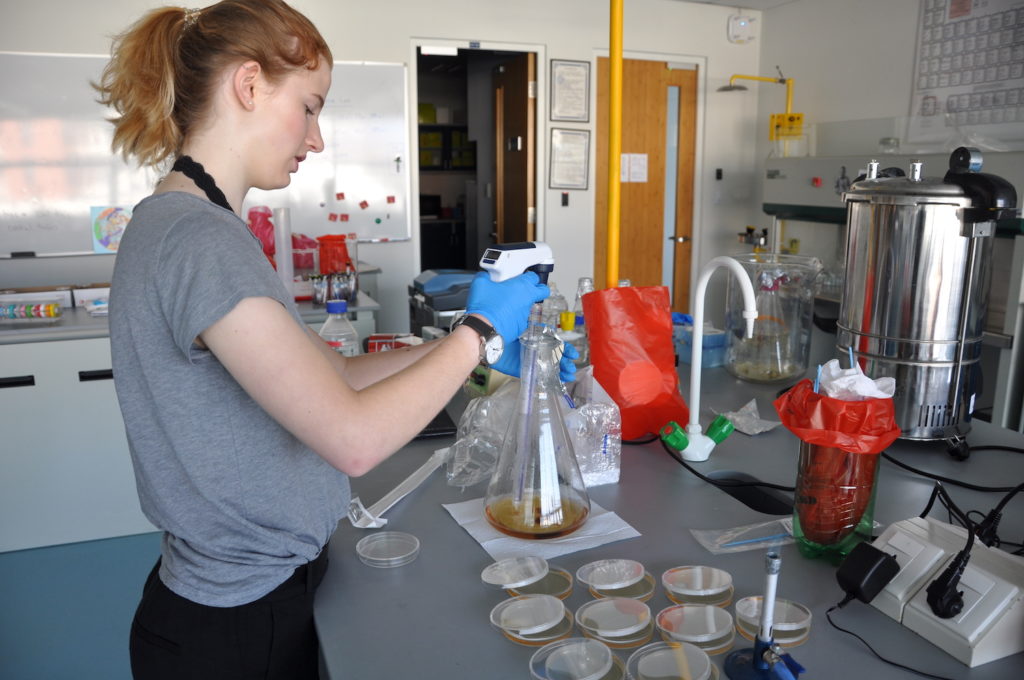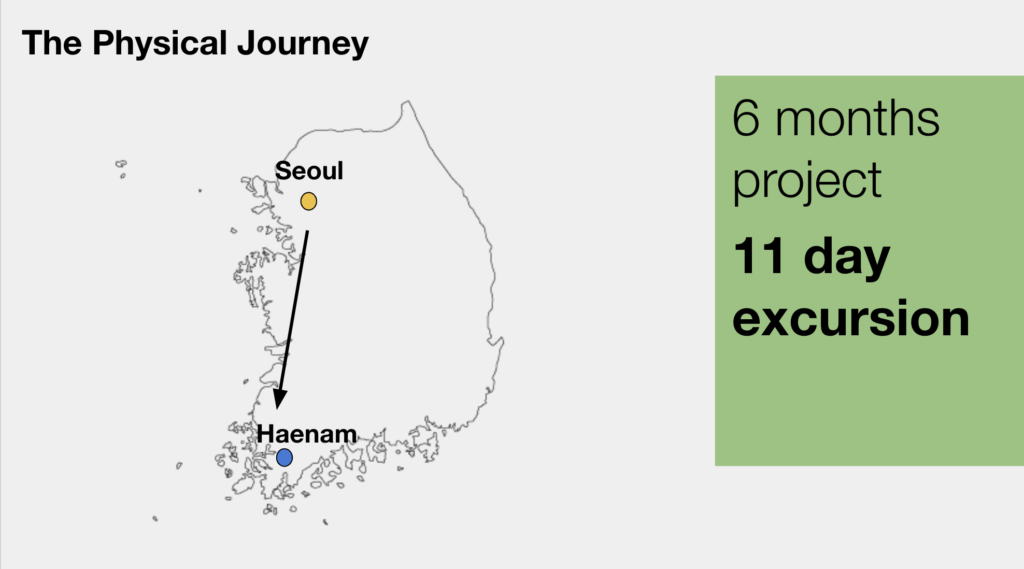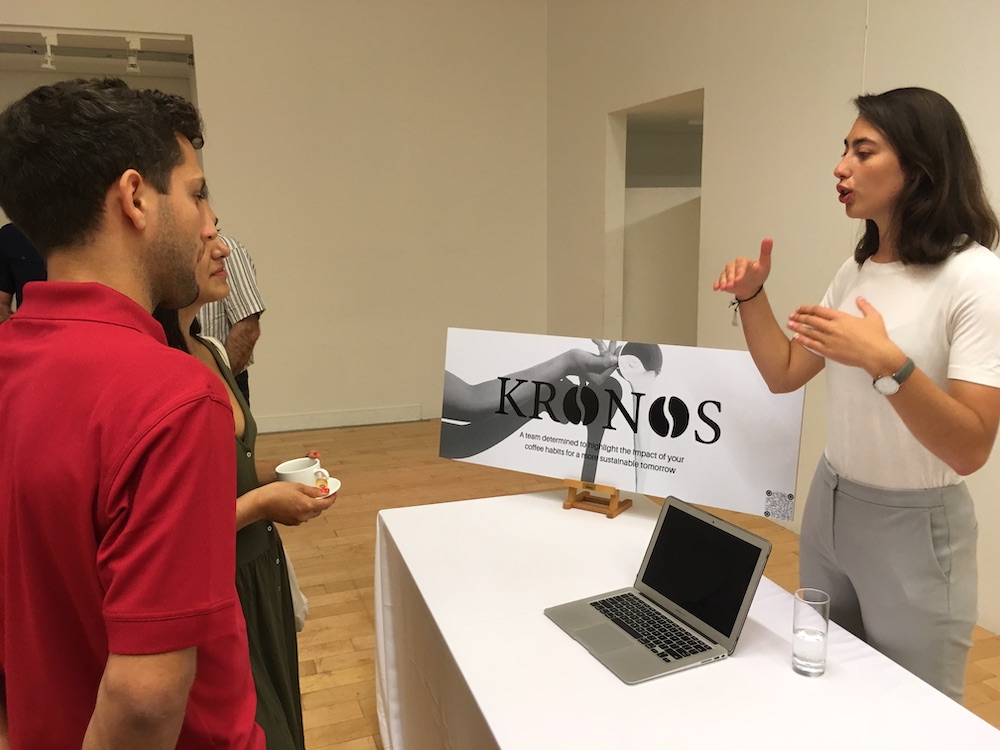1) Hi Nada, can you tell us what you've been up to since graduating from THINK Global School in 2022? Since graduating in 2022, I've been pursuing a passion I found while at TGS, sustainability, and I am currently majoring in engineering in renewable energy systems at Al Akhawayn University, in Ifrane, Morocco. But there is way more than that! I've had a chance also to explore the world of...
Read MoreUnder most traditional curricula, students are rarely given the chance to explore the topics they are truly passionate about, instead focusing on concepts that have been deemed worthwhile by a governing body. This top-down approach to learning comes at a price: by the time most students reach high school age, they have become increasingly disengaged compared to their earlier years.

But it doesn’t have to be this way. What if instead of focusing on rote learning, we provided students with the opportunity to explore their interests, cultivate their talents, and unleash their ambitions? Through the Changemaker Curriculum’s focus on skill mastery, we provide students the opportunity to do just that by giving them the autonomy to create and share projects completely of their own design.
Mastery Projects in a Nutshell
To become a master at THINK Global School, students need to show the highest level of competence in their project’s selected learning targets by either creating a new or original piece of work and/or by passing on their acquired knowledge to their peers.
After selecting a topic in which they would like to become a master, students identify project mentors and community experts who will aid them in the mastery process. These mentors are typically experts in a field related to the project and can share useful insights throughout the mastery process while also providing a network of resources that can be leveraged by the student.

Maren H. experiments with bacteria growth on various forms of mayonnaise
Mastery projects require students to approach their driving question from many angles, with their research, actions, and conclusions being recorded within a process portfolio. These process portfolios are robust and house all of the process work. Due to all work being digitally housed in the process portfolio, students are able to engage in a continual process of reflection and self-assessment, receive and apply feedback, and easily reference past projects to track and build on their growth as a learner over time.
After finalizing their project, students present their findings to a mastery committee during a fifteen-minute presentation, followed by fifteen minutes of questions from the committee. If the committee deems that the student has achieved mastery, their accomplishment is celebrated during a Mastery Ceremony. These ceremonies are considered a big deal within our community as they mark a rite of passage.
Now that you have an understanding of how mastery projects work at THINK Global School, here’s a look at three mastery projects put together by students from the Class of 2019 and 2020.
Ecology of the Mind by Souen K.
For her second mastery project, Class of 2020 student Soeun K. set out to create a work of art that explores our world by focusing on its most essential component: the mind. In doing so, Soeun endeavored to answer the following driving question: How can I acquire deep understanding of Buddhist philosophies and their perspectives on the self and the world by working with monks and creating an original short film?
During the first stage of the Ecology of the Mind, Soeun sought to establish the basis of cognition, behavior, and data collection. She did so by taking the EdX Animal Behavior course offered by Wageningen University, which over six weeks explores the various behaviors animals adopt in order to meet the challenges of their daily lives. Soeun also read a variety of books to further enhance her knowledge of cognitive methods including The Embodied Mind and The Extended Phenotype.
For her project mentor, Soeun chose to work with Chanpil Jung, an Ashoka Fellow who is Head of Organization at Future Class Network Korea and has spent over twenty two years producing documentaries at the Korean Broadcasting System. Chanpil’s years of expertise in the field of filmmaking proved to be an invaluable resource for Soeun, and his feedback helped her make informed decisions about what film equipment to use, settings, techniques, storytelling, and more. Soeun also took a film class put together by fellow TGS student Amelie A., another budding filmmaker/photographer who has shown tremendous talent at learning targets associated with photography, filmmaking, and visual literacy.
For the second stage of her mastery project, Soeun focused on delving into the mind, especially the human mind. To do so, Soeun studied the philosophies and practices of Korean Buddhism due to its centuries-old practices being highly disciplined and fundamentally reflective towards human minds.
Souen intensively researched Buddhist philosophies and history through third party sources such as websites, papers, and books while also focusing on the filmmaking component of the project. She did so by constructing timelines and establishing goals for the pre-production, production, and post-production processes of Ecology of the Mind.

After the research portion of her project was complete, Soeun embarked on an 11-day filming excursion at a remote Mihwangsa temple in Haenam, South Korea. Here she was able to interview a Mahayana Buddhist monk, Kum Kang Sunim, and hear him share centuries-old Buddhist insights, which Soeun believes have the potential to revolutionize cognitive science. Alongside filming Kum Kang Sunim, Soeun turned her camera to capture the everyday routines of the temple’s inhabitants and Haenam’s surrounding natural beauty.
Upon the completion of filming, Soeun set about editing her footage, engaging in sound production, and sorting out any copyright issues that might spring up once the film was shared publicly. Once the documentary itself was complete, Soeun began preparations to present her mastery project, including mock defending it in front of sophomores and juniors to demonstrate how it is done. She plans on defending the project properly in Chile.
Soeun has also submitted Ecology of the Mind to 22 international film festivals. She looks forward to finding out the results in early 2020.
Kronos and the True Cost of Coffee by Keo S., Alicia H., and Isabelle R.
Question: What is the true cost of coffee? If you were to guess the $3.65 you paid for your most recent latte, Class of 2019 graduates Keo Sket, Alicia Husselin, and Isabelle Ricotta would like a word with you.
While many coffee brands tout their sustainability efforts, what isn’t shared so publicly is the sobering fact that the production and distribution of coffee contributes greatly to greenhouse gas emissions and deforestation. That hypothetical $4.95 latte mentioned up top takes approximately 140 liters to grow, process, and transport enough beans for a single cup according to figures from the UN Food and Agriculture Organization.
On top of that, the vast majority of farmers that work on coffee plantations are being exploited. From inhumane living conditions to unfair pay, dangerous working environments to child labor — basic human rights are being neglected in exchange for economic benefit.
So what can consumers do who wish to support the producers and brands who are making an effort to be ethical? For their mastery project, Keo, Alicia, and Isabelle came up with the idea of Kronos, a mobile app that informs conscious consumers of where their coffee beans are really coming from. Through the Kronos app, customers in search of coffee can see basic information on coffee shops like location, size, wifi, and customer reviews alongside a rating on the cafe’s vendor choices concerning social and environmental sustainability. Cafes that support projects aimed at bettering the coffee industry, be it small contributions to helping the environment (beach clean ups) or more ambitious project done in collaboration with coffee farmers, and meet a high standard can become Kronos certified. Every time a consumer buys a coffee at one of Kronos’s certified cafes they collect points. And when they reach a certain amount of points, money is donated to selected sustainability projects. Kronos-certified cafes receive window decals to display, making it easy for passerby who are familiar with Kronos to know that their money is being distributed fairly throughout all stages of the supply chain. Conscious coffee consumers can now make a difference with just one click.

Alicia explains Kronos during the 2019 Symposium
For the project, Keo, Alicia, and Isabelle each tackled areas that best matched their specializations and skillset: Keo took on the duties of chief financial officer, Isabelle assumed the role of chief marketing officer, and Alicia handles the responsibilities of chief communication officer. Together, they have worked on mood boards, app design, marketing strategy, financial projections, sustainable product development, website development, field excursions, and other integral areas of bringing a new project to life. The trio also visited coffee farms during their term in Costa Rica to learn firsthand about the industry, fair trade, and our ever-increasing global economy.
For their mentor, the trio enlisted Fabio Milani to help guide their project. Milani is a world-renowned coffee expert and one of the pioneers of coffee flair (the designs that are now ever-present in lattes and cappuccinos in high end coffee shops everywhere). Keo, Alicia, and Isabelle met Fabio in Rome while enrolled in his five-day barista course, which provided an intensive look into all aspects of the coffee industry, including brewing methods, coffee shop business practices, workflow, and more.
The trio also received mentorship from other members in the industry over the course of the mastery project. This included Anne Love, an environmental science teacher at Concordia International School in Shanghai, China, and Tim Heinze, the CEO of Hani Coffee and Huskee Cup, which produces award-winning reusable coffee cups. These are made from used coffee husks and are designed to help cut down on the over 500 billion disposable cups that end up in landfills each year.
Keo, Alicia, and Isabelle had the opportunity to present their Kronos project in Athens, Greece, during their final term as THINK Global School students. The presentation from their mastery defense, which was a success, can be viewed at the top of this summary.
Their mastery defense was just the beginning: Keo, Alicia, and Isabelle are working hard to bring Kronos from concept to reality, providing a real option for coffee enthusiasts to find an ethical latte or caffè Americano wherever they are. If you live in the Vancouver area, keep an eye out for the app’s release soon!
Supporting Sustainable Travel by Kien N.
For his mastery project, Kien sought to answer a driving question that had become very important to him during the course of his TGS journey: How could he help travelers develop sustainable habits in travel?
To do so, Kien created a collection of e-books that educate travelers on the environmental issues that persist in the locations listed above, all three of which were host cities during Kien’s senior year. The travel guides also spell out the laws and risks of each location as well as popular landmarks, activities, and the dos-and-don’ts of living in harmony with the environment as you travel the world.
You can find all three of Kien’s e-books above and more examples of student projects here.